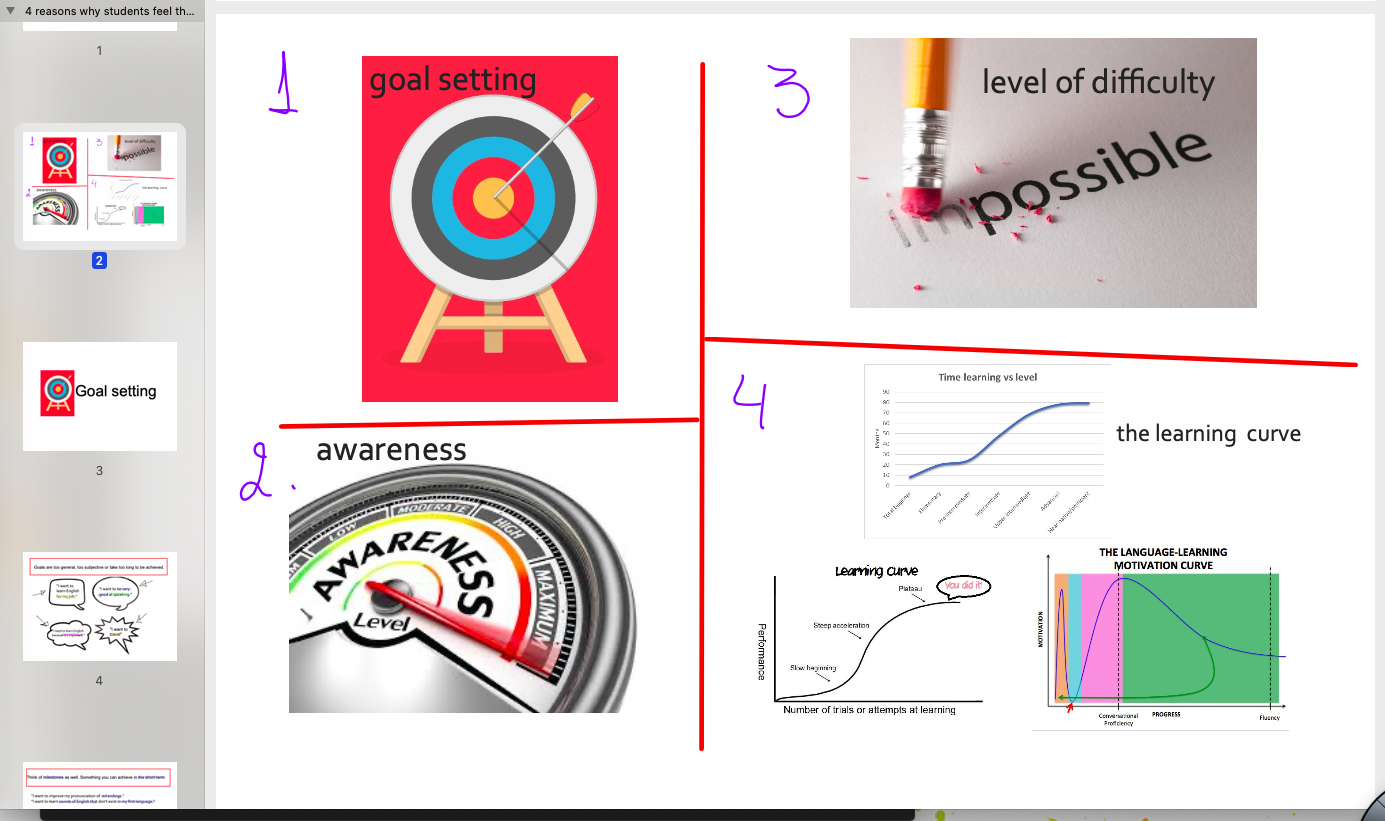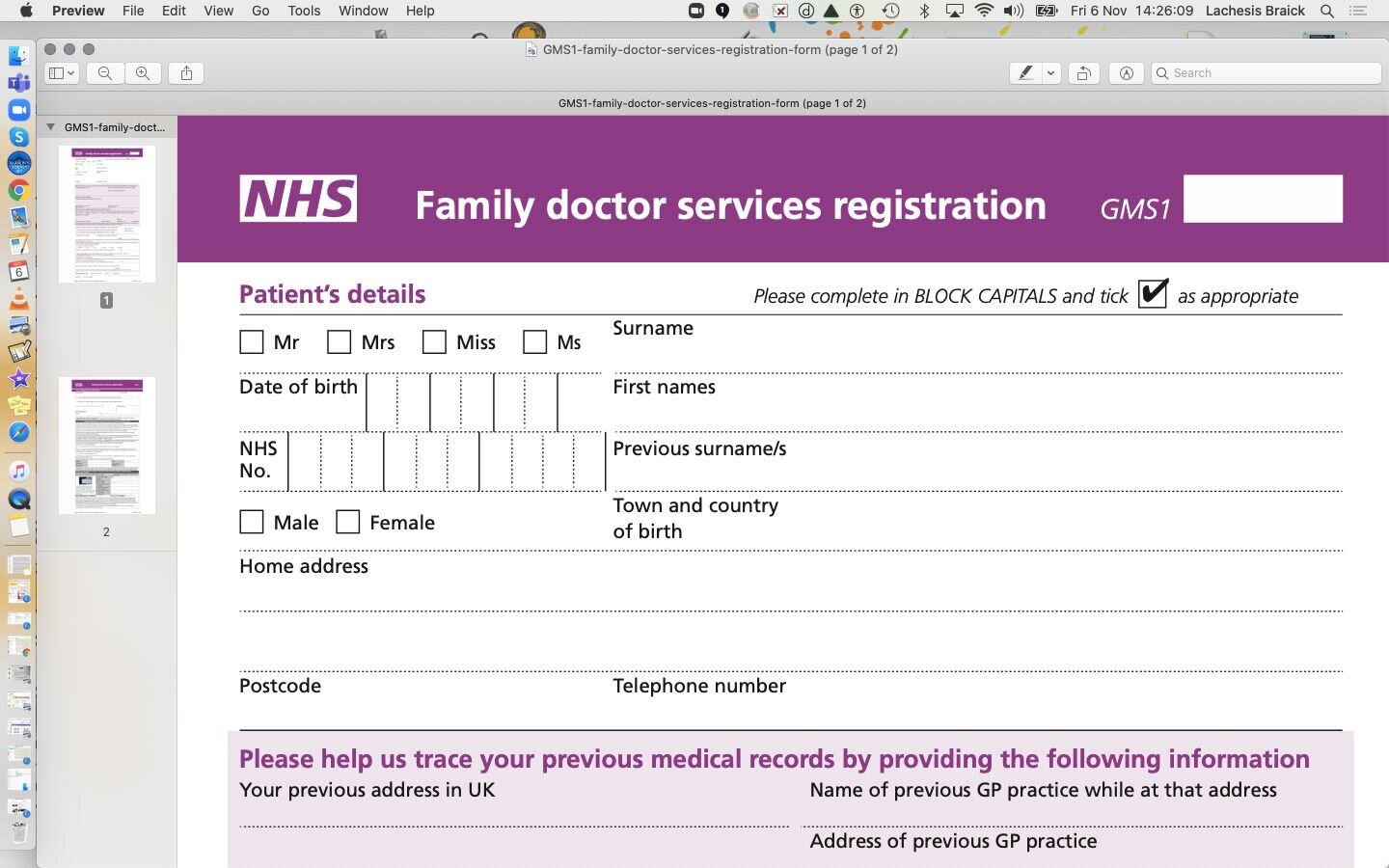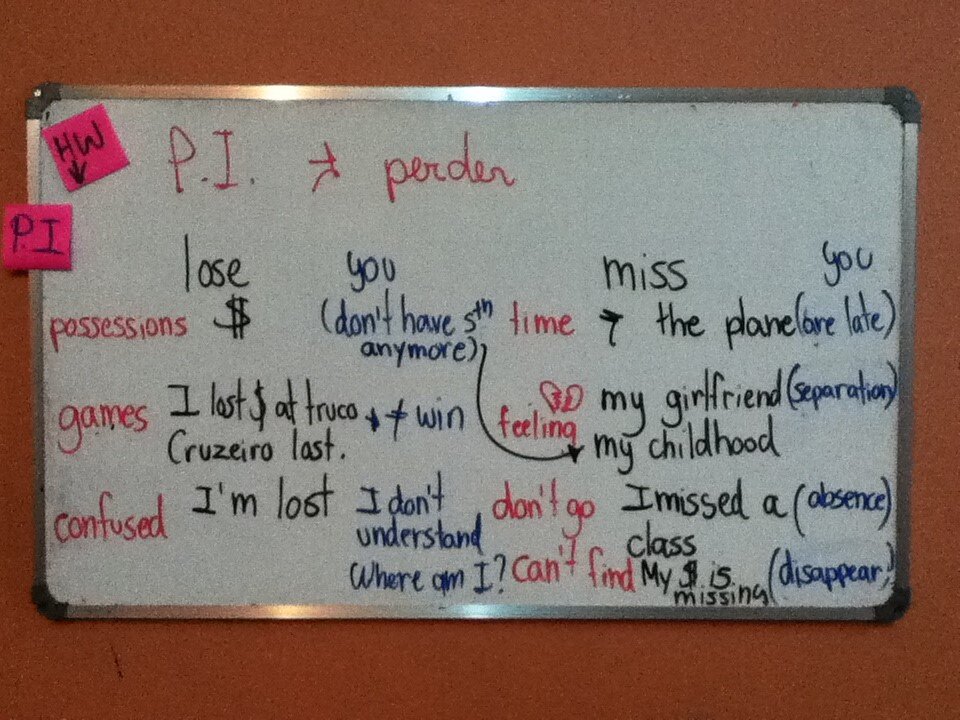Four reasons why students feel they are not learning English
Para português, clique aqui
There is nothing worse than the nagging feeling you are not progressing anymore. In the following videos Here’s why this might be happening:
Goal-setting
Goals can be long or short-term. It is normally easy for student to know what they want in the long run, but often they don’t know what to do/expect from the in the short-run. Check out a few ways to funnel long-term goals down so you can convert them into milestones:
Long-term goal: English is important for me
Short-term goal: Right now, I need to prepare for job interviews
Long-term goal: I want to be fluent in English
Short-term goal: Right now, I need to learn how to introduce myself (verb to be as a milestone, yay!)
Long-term goal: I want to improve my grammar
Short-term goal: Right now, I need to learn how to correct myself
Long-term goal: I need English at work
Short-term goal: Right now, I need to be able to introduce myself and my team
Long-term goal: I want to travel
Short-term goal: Right now, I need to pronounce names of drinks in English
Long-term goal: I want to study abroad
Short-term goal: Right now, I need to improve my essay writing skills
Short term goals need to be practical, feasible in the short-term and enjoyable. Find something you love. Learn how to express that in English.
Increased awareness
Increased awareness is when you know you make mistakes and you pay attention to those mistakes. You think about those mistakes, you want to correct them, and this thought is with you every time you talk. That’s normal. Once you learn how to self-correct you will be much more confident about it.
Difficult topics
Some of the things you will learn in English doesn’t exist in your first language. You will think A LOT about these things. Remember to allow yourself to contextualise these things as much as you can.
Book mentioned in the video: Learner English
The learning curve
The learning curve explains why students reach a plateau in their learning process. My theory is that it has to do with:
a. The Law of Diminishing Returns
Adding more input will eventually turn in less output. Guess what? when you’re learning you are also consolidating. Whenever you learn something new you have to contextualise it with everything else you already know. That will eventually result in you not progressing as fast, because overall you will be compartmentalising more.
b. Being communicable
If you are communicable, you can talk even if you make mistakes. That will result in less feedback, more confidence and in a lot of content being perceived as detail.











